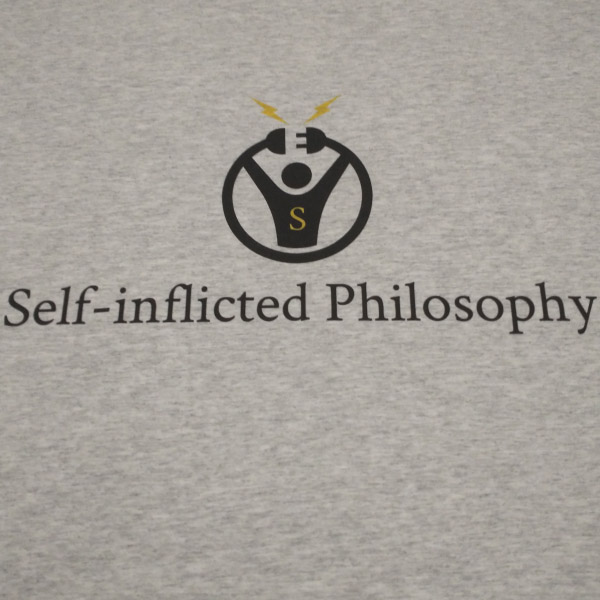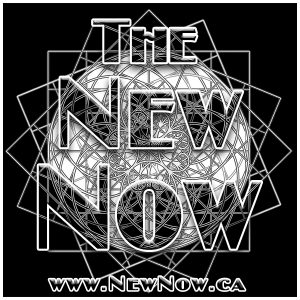4 Ways to Get Better at Being Wrong
“Being wrong is erroneously associated with failure. To be proven wrong should be celebrated, for it is elevating someone to a new level of understanding.” ~Peter Joseph
Truth is an elusive beast. It’s ethereal, but it’s also somehow corporeal. It exists and yet it is unknowable. This is because the truth comprises infinity and any brain attempting to know infinity must reduce it into finite chunks to make sense of it, thus sacrificing truth for “sense.”
But the interesting thing about truth is that you are more likely to be right by admitting you are more likely wrong than by declaring that you are more likely right.
The psychological trick, then, is to understand that you are a fallible creature with a fallible brain perceiving an infinite reality using finite faculties. By practicing embracing wrongness, you will be more open to being wrong which will make you more likely to be right. Even better, by practicing detachment from being either right or wrong, you sharpen your curiosity. When you let truth flow despite what you think you know, you allow it to emerge despite cultural conditioning.
Because when it comes down to it, nobody is off the hook for being wrong. The best you can do is get better at recognizing the hook for what it is so that you are less likely to get dragged away by it. You do this by developing and practicing disciplined strategies (like the four strategies in this article) for cutting the line and negotiating the hook before the Fisherman of Close-mindedness can reel you into his Boat of Dogmatism.
The key is to get better at being wrong by being less serious about being right and more curious about why wrongness is inherent in the human condition.
Paraphrasing Samuel Becket here: Ever tried. Ever wrong. No matter. Try again. Be wrong again. Be wrong better.
1.) Rather than certainty, embrace curiosity:
“Most of the greatest evils that man has inflicted upon man have come through people feeling quite certain about something which, in fact, was false.” ~Bertrand Russell
Curiosity is essential. It is the fuel that launches us beyond certainty.
The only way to kill curiosity is to cling to certainty. When you’re certain about something it closes you up to possibility. It locks you into a dogmatic box. It creates invulnerable walls around your comfort zone which smothers your ability to be vulnerable.
Certainty kills curiosity because it allows you off the hook of your fear of being wrong. When you’re certain you’re right, you no longer have to fear being wrong. This comes as a relief. Albeit a self-delusional one.
As Kathryn Schulz said, “Our love of being right is best understood as our fear of being wrong.” Ironically, your fear of being wrong drives your wrongness more than your need to be right.
And so, you put on airs. You haughtily stand by your convictions. You’re so heavy with uppity self-seriousness that you can’t see past yourself. Even as you’re standing on the razor thin ice of your beliefs, you stomp and bray and leap as if you were standing on concrete.
But what happens when the ice breaks? What happens when the house of cards you’ve built on the quicksand of your faith begins to topple? What happens when you’re suddenly slapped with the truth after a lifetime of being kissed by lies?
Usually, typically, tragically, cognitive dissonance is what happens. Most of us will cling to outdated yet comfortable falsehoods over updated yet uncomfortable truths. As George Orwell explained, “We are all capable of believing things which we know to be untrue, and then, when we are finally proved wrong, impudently twisting the facts so as to show that we were right.”
A huge part of getting better at being wrong is realizing that we are prone to this cognitive dissonance, to become aware of it, and then to relieve it by choosing curiosity over certainty.
When we choose curiosity over being either certainly right or certainly wrong, we are choosing open-mindedness over single-mindedness. We are choosing humor over self-seriousness. We are choosing humility over hubris.
2.) Rather than an opinion, have a notion:
“The greatest deception men suffer is from their own opinions.” ~Leonardo da Vinci
If you can replace ‘having an opinion’ with ‘having a notion’ you remain flexible in the face of impending rigidity. It’s a way of getting out of your own way so you can better see “the way.” As philosopher Eric Weiner said, “Postpone defining what you see, and you will see more.”
When you have a notion rather than an opinion, you have intellectual wiggle room. You “leave yourself outs” as they say in the Poker world. Where opinions are more of an “anchor,” notions are more of a “skyhook.” They are a way to get from this thought to that thought. Where opinions are an end, notions are a means. They serve as a vehicle for further thought rather than a monument to belief.
When you choose having a flexible notion rather than a rigid opinion, you are choosing the question mark over the period. You are choosing adaptability and transformation over remaining stuck in your ways. You become a gamechanger.
You change the way the game is played by taking responsibility for change itself. You change the way the game is played by getting comfortable with the uncomfortable truth, by moderating your comfort and security with courage and flexibility. Most of all, you become a game-changer by admitting that you could be wrong.
If it’s true that, as Daniel Dennett said, “There’s no polite way to suggest to someone that they have devoted their life to a folly,” then it stands to reason that you should get out of your own way in the first place by having a flexible notion rather than a rigid opinion so that you are not so devastated when you discover your folly.
3.) Rather than preferences, have references:
“The great lure of the archetypal situation is that you yourself suddenly cease to be. You cease to think and are acted upon as though carried by a great river with no end. You are suddenly eternal.” ~Jung
Preference is overrated. Life is less about getting what you prefer and more about making the best of what you receive. A huge part of making the best of what you receive is making life references primary over life preferences.
What does this mean? It means getting out of your own way. It means allowing for guideposts, other points of view, and a healthy sense of detachment. It means standing on the shoulders of giants to see further than they did. It means employing archetypal strategies as existential pivot points in order to better navigate the labyrinth of life.
Look at archetypes as reference points along the path. They are also aspects of you that can help keep you detached in a healthy way so you can better assess your situation. They provide a powerful way to understand the human mind and map out the labyrinth of life.
“Archetypes,” wrote Jung, “are the living system of reactions and aptitudes that determine the individual’s life in invisible ways.” Archetypes are unconscious psychosocial symbols representing forms, themes, and concepts in the world. They are like a foundational human story, a leitmotif, something we intuitively understand.
Here is a short list of the most common archetypes (certainly not exhaustive):
The Hero: warrior, adventurer, outlaw, revolutionary.
The Shadow: demon, inner darkness, fear, power.
The Trickster: fool, jester, shapeshifter, sacred clown.
The Eternal Child: inner child, beginner’s mind, youth, rebirth.
The Old Wise Man: wizard, magician, sage, monk.
The Old Wise Woman: Mother Nature, caregiver, nurturer, womb.
The more you learn how archetypes work, and the better you get at using them as reference points, the better you will be at identifying the patterns that influence most of human behavior and the better you will get at not falling into the trap of your own preferences. The more you understand archetypes, the more you will be able to stay out of your own way.
Archetypes are like doorways into emotional alchemy. They are doorways to knowing the self. They lead you down into the unconscious forces hidden beneath the surface.
Walking through the doorway of the Hero, for example, will give you courage. The Hero becomes a tool to leverage more courage into your life. It plants the seed of a heroic bent. It gives you the ears needed to hear the call to adventure. It gives you the heart needed to take on the arduous task of being wrong about a great many things.
4.) Rather than a point of view, become the view:
“Why do we argue? Life’s so fragile, a successful virus clinging to a speck of mud, suspended in endless nothing.” ~Alan Moore
At the end of the day, being wrong is more human than being right. Sure, you would probably rather be right. But the beaches of history are filled with the wreckages of human wrongness. You ignore them at your own great peril.
At worst you’re an imperfect, hypocritical, fallible creature prone to mistakes. At best you’re aware of it. But awareness is only half the battle. You must also be able to detach. Rather than bludgeon the world with your (probably wrong) point of view, you must be able to become the view.
When you become the view, you go from small-picture believing to big-picture thinking. You transcend the ego and its attachment to pettiness. You detach in order to see how everything is attached. You get above rightness and wrongness and embrace wonder. You manifest awe. You channel fascination. You become so utterly curious that no amount of petty certainty could ever hold you down.
You see how ‘being right’ was always overrated, and almost always an ego-trip. Most of all, you see how important it is to have the courage to be wrong and to learn from it.
You see how the worst mistake of all is to stop making mistakes. The worst wrong of all is to remain afraid of being wrong. That’s because these are mistakes of laziness. The best mistakes are mistakes of ambition. The courage to be wrong is daring to make mistakes that could lead to better solutions, deeper curiosity, healthier notions, and more powerful references that have the potential to broaden the view of humanity.
The courage to be wrong keeps the human leitmotif open-ended. It transforms periods into question marks. It switches out one profound truth for another profound truth. It keeps things in perspective by allowing fallibilism to trump all other isms.
With the courage to be wrong, you gain the philosophical plasticity for somehow, miraculously, against all odds, being “right.” You gain the capacity to climb the mountain of your wrongness and gain the highest heights, where Socrates sits on the summit repeating his eternal mantra, “I know only one thing: that I know nothing.”
Image source:
Ultimate Pleasure by Julian Majin
About the Author:
Gary Z McGee, a former Navy Intelligence Specialist turned philosopher, is the author of Birthday Suit of God and The Looking Glass Man. His works are inspired by the great philosophers of the ages and his wide-awake view of the modern world.
This article (How to Get Better at Being Wrong) was originally created and published by Self-inflicted Philosophy and is printed here under a Creative Commons license with attribution to Gary Z McGee and self-inflictedphilosophy.com. It may be re-posted freely with proper attribution, author bio, and this statement of copyright.
– Come Like Us on Facebook – Check us out on Instagram –
– Sign Up for our Newsletter –













